
Proffessional Development lesson plan to present OER to teachers. includes slides and agenda handout
- Subject:
- Educational Technology
- Material Type:
- Lesson Plan
- Author:
- Emily Dawkins
- Date Added:
- 07/28/2023

Proffessional Development lesson plan to present OER to teachers. includes slides and agenda handout

This infographic is an easy to understand reference for utilizing Creative Commons when publishing open education resources.
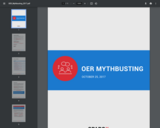
OER Mythbusting addresses the top seven myths about OER in North American higher education, as voted on my more than 100 faculty, librarians, students and other members of the OER community. This project grew out of a discussion during one of SPARC’s Libraries and OER Forum monthly calls, where a group of librarians from the U.S. and Canada identified a need for better resources to address misconceptions about OER. A team of volunteers developed a poll and distributed it over email lists and social media over a two week period in July 2017. The results were then used to produce this collaboratively written document.
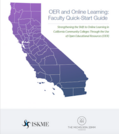
The Faculty Quick Start Guide is an outcome of a project by ISKME, supported by a grant from the Michelson 20MM Foundation, to conduct a study and develop a set of resources to accelerate OER use for distance education, especially the urgent shift to remote learning during the pandemic in 2020. The Guide, created in collaboration with a selection of OER and online education champions across California community colleges (CCC), contains:
- Models and approaches to online learning, and to emergency remote learning in the context of COVID-19;
- How and to what extent OER fits into these models, and local and state-level supports needed for its integration and sustainability;
- Design considerations for integrating OER in online learning, including pedagogical and platform considerations;
- Curatorial practices, such as using OER curation tools and aligning curated OER to learning outcomes; and,
- Starting points and tips for colleges and faculty who want to initiate OER integration into distance education.
Tailored to faculty and campus administrators both in California and beyond, the Guide has the aim is to enable system-wide shifts to meet postsecondary institutions’ long term goals for distance learning, and faculty’s emergency plans for remote learning in response to the COVID-19 and potential future crises.
The Guide is also available as a PDF for download: https://drive.google.com/file/d/17AXs30dZeLOrGeNBQ-ISc_OJXIxE9xtB/view?usp=sharing.
See the companion guide for administrators at: https://www.oercommons.org/courses/iskme-michelson-20mm-oer-campus-administrator-quick-start-guide-public/edit

This video was created by Blink Tower (Cape Town, South Africa) for a 2012 video competition (http://whyopenedmatters.org/index.html) to explain why OER Matt...

Digital learning is the vital tool for facilitating the teaching learning process. The article gives the current scenario and SWOT analysis of the digital learning in higher education.

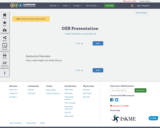
Gives a little insight into media literacy.
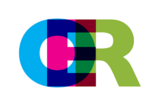
This module is here to help you navigate the many resources that are available to you as a teacher! Using open education resources may be a bit confusing and overwhelming at first, but it's a rewarding experience! In fact, this module is using an OER resource through OER commons!
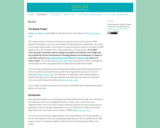
Led by John Hilton III, with additional contributions from Stacie Mason and Virginia Clinton-Lisell
This review provides a summary of all known empirical research on the impacts of OER adoption (including our own). The version below will be periodically updated with new articles as we become aware of them. If you know of an empirical research study on the impacts of OER adoption that is not included in this review, please leave a comment below. An in-depth article focusing on empirical research relating to perceptions and efficacy at the college level was published by the journal Educational Technology Research and Development in August of 2019.
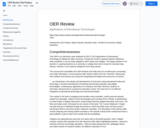
Review of OER textbook authored by Susan Stansberry that covers the material's comprehensiveness, content accuracy, relevance/longevity, clarity, consistency, modularity, organization structure flow, interface, grammatical errors, and cultural relevance.

Short Description:
This starter kit has been created to provide instructors with an introduction to the use and creation of open educational resources (OER). The text is broken into five sections: Getting Started, Copyright, Finding OER, Teaching with OER, and Creating OER. Although some chapters contain more advanced content, the starter kit is primarily intended for users who are entirely new to Open Education. [Version 1.1. Revised September 5th, 2019.]
Long Description:
This starter kit has been created to provide instructors with an introduction to the use and creation of open educational resources (OER). The text is broken into five sections: Getting Started, Copyright, Finding OER, Teaching with OER, and Creating OER. Each chapter is accompanied with learning objectives and most chapters feature interactive elements and opportunities for readers to engage with the text. Although some chapters contain more advanced content, the starter kit is primarily intended for users who are entirely new to Open Education.
Word Count: 18611
(Note: This resource's metadata has been created automatically by reformatting and/or combining the information that the author initially provided as part of a bulk import process.)
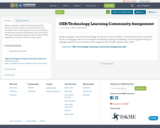
Mango Languages is Educational technology. The primary users are students. the educational level is secondary school. Any language users can use Mango.It has listening, reading, and speaking. The learning goal of Mango is language acquisition and increased student engagement at all levels. Keyword: App, online
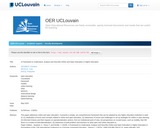
This paper addresses online and open education. It presents a simple, yet comprehensive framework that can be adopted by any higher education institution in seek of: (1) clarification of terms and concepts related to online and open education, (2) awareness of issues and challenges to set up strategies for online or open learning, (3) informed choices and their impacts on operationalization actions, from an institutional point of view, (4) perspectives on crucial issues, such as mobility, that HEI faces in a context of internationalization, (5) awareness of policymakers and teachers on what open and online education is.
Paper Citation : Jacqmot, C.; Docq, F. and Deville, Y. (2020). A Framework to Understand, Analyse and Describe Online and Open Education in Higher Education.In Proceedings of the 12th International Conference on Computer Supported Education - Volume 1: CSEDU, ISBN 978-989-758-417-6, pages 458-465. DOI: 10.5220/0009470704580465
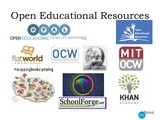
Lets learn using some major OER repositories for searching teaching learning material and contributing i these OERs. The module will give the basic informations about know hows of using these global OER platforms for learning and creating OERs. The module has important resouces, further reading resource videos and quiz for self assessment.
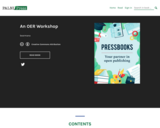
Trine University promotes the awareness, adoption, adaptation, and creation of open educational resources and no-cost resources for students. This work: “An OER Workshop” by Andrea Bearman is licensed under CC-BY 4.0 and is a derivative work of Creative Commons Certificate for Educators, Academic Librarians, and GLAM. In order to receive a certificate, you must take the course through Creative Commons. This book means to share an abbreviated version of the information with Trine University specifics.
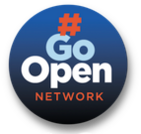
On Thursday, March 9, 2023, as part of Open Education Week, the #GoOpen Network hosted the webinar, "OER and Accessibility," featuring Cynthia Curry of the National Center on Accessible Educational Materials for Learning (AEM Center) at CAST, in conversation with Oregon Department of Education leaders, Vanessa Clark and Aujalee Moore, who are deeply engaged in this work with educators.
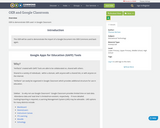
OER to demonstrate OER used in Google Classroom

Developing a course, and associated materials, to support professional development can often be a costly enterprise. Designers and developers need to consider curriculum design, materials development, quality assurance, platform customisation and evaluation. Following this process step by step is often protracted and costly. The ADDIE model of instructional design, a popular and often cited ideal approach to creating courseware, suggests that analysis of needs, courseware design and development, implementation and course evaluation is required by any entity bent on creating effective courses.
In contrast to this mindset, however, there is evidence that a collaborative-shared approach to instructional design challenges the ADDIE model’s assumption that each step needs to be done in-house. Since 2011, several Teacher ICT Integration professional development initiatives around the globe have demonstrated that burdens in both design and development phases can be shared, shortening the time required to design courses and develop the accompanying resources. This approach also is more cost effective than typical ventures.
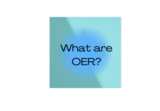
This lesson supports faculty across Arizona IHE in exploring Open Educational Resources and a basic introduction to Creative Commons licenses. Educators will:learn definitions of OER and CC licensesexplore local connections to OERpractice their understanding of OER, CC and how this connects to their local experience.